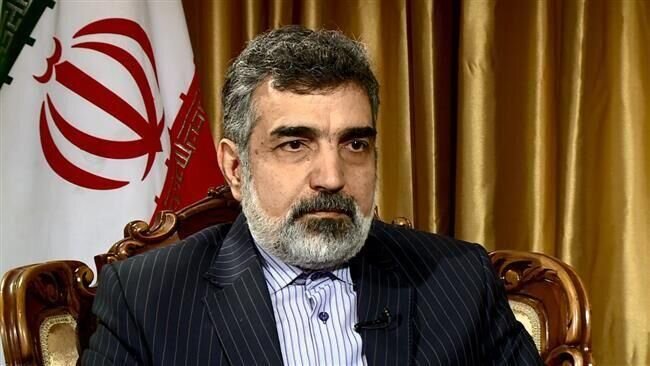Kamalvandi says Iran able to produce stable isotopes without Russia

TEHRAN- The Atomic Energy Organization of Iran (AEOI) is planning to be among rare global producers of 11 types of isotopes, the AEOI spokesman and deputy chief said on Sunday, noting that Iran is able to produce isotope even without the help of Russians.
“It is supposed that the Atomic Energy Organization, in project which will be completed in the next years, to be capable of producing 11 different types of isotopes,” Behrouz Kamalvandi told a press conference.
“Do not forget that there are only 2 or 3 countries worldwide that enjoy such capability,” the official said.
Isotopes are variants of a particular chemical element that differ in neutron number, and consequently in nucleon number. All isotopes of a given element have the same number of protons but different numbers of neutrons in each atom.
Stable isotopes are non-radioactive forms of atoms. Although they do not emit radiation, their unique properties enable them to be used in a broad variety of applications, including water and soil management, environmental studies, nutrition assessment studies, and forensics.
As the U.S. has not renewed sanctions waiver for companies that have been cooperating with Iran in nuclear industry, naturally the Russians won’t be able to cooperate with the country; however, the Russians have said that they are interested in continuing cooperation with Iran.
“Regarding our know-how, there is not any impossible objective (to be materialized) for the country’s nuclear industry,” Kamalvandi said, adding, “So, we can produce stable isotopes even without Russians’ assistance.”
“Of course, in diplomatic view, if the Russians stay with us (in producing stable isotopes project) it will be definitely better,” he added.
“We are building new facilities in the Fordow nuclear site. Construction of new building facilities will be completed with the next few months. The new facilities we can produce stable isotopes without utilizing centrifuge machines,” Kamalvandi explained.
Touching upon a halt in cooperation with Russians in the project of production radio isotopes in Fordow, he said, “7 or 8 days ago, we negotiated with the Russians over the issue. Technically, enrichment cannot be carried out in a site which is used to produce stable isotopes, therefor, when we decided to embark on enrichment, we could not produce stable isotopes simultaneously.”
“In negotiations with the Russians, we offered several substitute plans in order to continue cooperation in technical levels,” he added.
In retaliation for the abrogation of the nuclear deal (JCPOA) by the Trump administration and imposition of sanctions, Iran has started enriching uranium at the Fordow site.
Kamalvandi further touched upon texts related to producing stable isotopes in the JCPOA, saying, “In the JCPOA document it is written that the activity (production of stable isotopes) should be carried out in a proposed location. Of course it has not clarified which one of the two chains. When we assessed we realized that each of the two chains will create some problems. We are negotiating with the Russians over the issue.”
The ground was broken for the second phase of the stable isotopes project in the Fordow facility on June 22.
Asqar Zare’an, the special assistant to the AEOI chief, expressed hope in early June that the facility would be finished and inaugurated in April 2020.
He added that the first phase of the project was finalized with the cooperation of Russia.
Iran is the 12th country that has mastered the technology to produce isotope which has various medical and agricultural applications, he explained.
MJ/PA
Leave a Comment